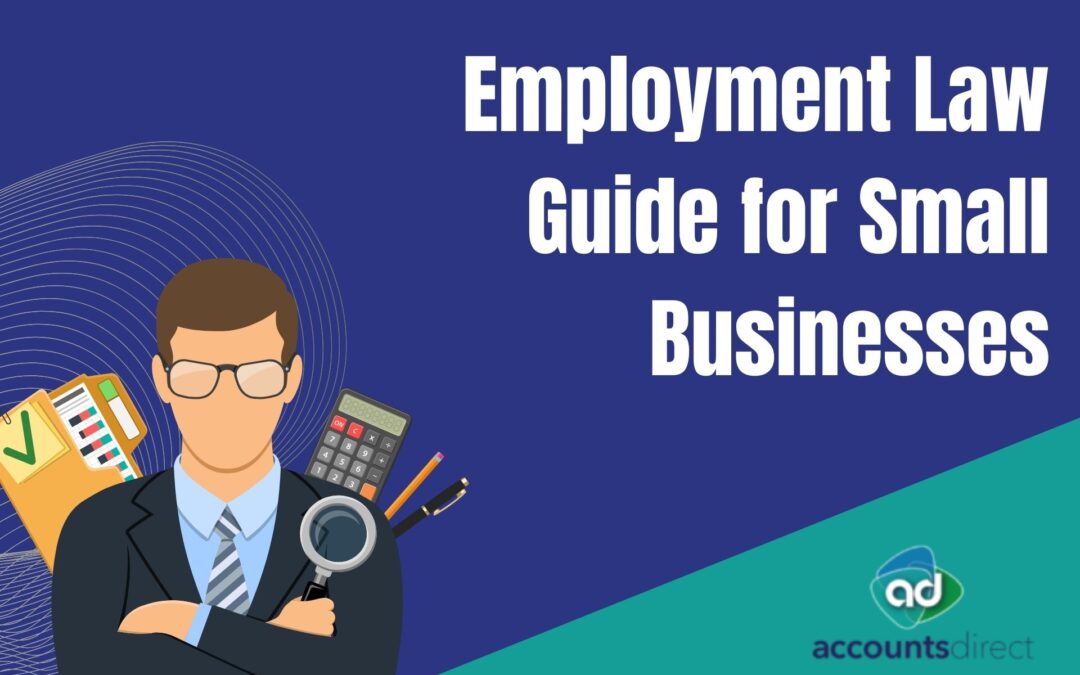Small business owners face many responsibilities, one of the most crucial being compliance with employment law. Employment law is a complex and constantly evolving area, with strict regulations outlined by the UK government to protect the rights of employees. Small business owners need to thoroughly understand employment law to avoid potential legal repercussions and maintain a positive work environment. In this blog post, we will provide a key guide to employment law for small business owners in the UK.
1.Understanding Employment Contracts
– Importance of Employment Contracts:Employment contracts serve as a legal agreement between an employer and an employee, outlining the terms and conditions of their working relationship. It provides clarity and protection for both parties and is a legal requirement for all employees, whether full-time, part-time or temporary. It is also the basis for establishing rights and obligations for both the employer and employee.
– Key Elements of an Employment Contract: An employment contract should include the job title, duties and responsibilities, working hours, pay and benefits, notice periods, and holiday entitlement. It should also outline expectations for conduct, confidentiality, and non-compete clauses.
– Types of Employment Contracts: There are three main types of employment contracts in the UK – full-time, part-time, and fixed-term. Full-time contracts typically involve working 35 hours or more per week, while part-time contracts involve working less than 35 hours. Fixed-term contracts, on the other hand, have a predetermined end date.
– Termination of Employment Contracts:Employers must follow the proper procedure for terminating an employment contract, such as providing mandatory notice periods and conducting formal dismissal meetings. Failure to do so may result in legal action against the business.
2. Compliance with Minimum Wage Laws
– Minimum Wage Rates in the UK: The UK government sets a minimum wage rate for employees, which is reviewed annually. As of April 2023, the national minimum wage for employees over 23 and above is £10.42 per hour. The wage for people aged between 18 and 20 years is currently set at £7.49 per hour
– Exemptions and Special Cases:Certain exemptions apply for businesses, such as those with apprentices or workers under 25. Different minimum wage rates also apply for different industries, such as agriculture or hospitality. Small business owners must be aware of these exemptions and rates to avoid potential legal consequences.
– Record-keeping Requirements: Employers must keep accurate records of all employees\’ wages, hours, and deductions for at least three years. Failure to do so may result in legal action and penalties.
– Consequences of Non-Compliance: Non-compliance with minimum wage laws can result in back payments to employees, being named and shamed by the government, and potential legal action. It can also damage the business\’s reputation and make attracting and retaining top talent difficult.
3. Health and Safety Obligations
– Employer Responsibilities for Health and Safety: Employers have a legal duty to provide their employees a safe and healthy work environment. This includes conducting risk assessments, providing necessary safety equipment, and training employees on health and safety procedures.
– Employee’s Rights for Health and Safety:Employees can refuse to work if they believe their health and safety is in danger. They also have the right to report any health and safety concerns to the appropriate authorities.
– Reporting and Managing Incidents: In a workplace incident or accident, employers must report it to the Health and Safety Executive (HSE) and keep a record of the incident. Employers must also have procedures in place to manage and investigate incidents.
– Ensuring Workplaces are Safe and Healthy: Employers must ensure that their workplaces follow health and safety regulations, including regular maintenance of equipment and machinery, proper ventilation, and appropriate hygiene measures. Failure to do so may result in legal action and damage the business\’s reputation.
4. Anti-Discrimination and Equal Opportunities
– Protection Against Discrimination: Employees are protected against discrimination based on age, disability, gender reassignment, marriage/civil partnership, pregnancy and maternity, race, religion or belief, sex, and sexual orientation.
– Types of Discrimination: There are several types of discrimination, including direct, indirect, harassment, victimisation, and discrimination by association. Employers have a legal duty to prevent and address workplace discrimination.
– Religious and Belief-Based Considerations:Employers must also be aware of and accommodate their employees\’ different religious beliefs and practices, such as providing prayer rooms and allowing time off for religious holidays.
– Preventing Discrimination in the Workplace: To prevent discrimination in the workplace, employers should have clear anti-discrimination policies, provide diversity and cultural awareness training, and promote a culture of inclusivity and respect.
5. Working Time Regulations
– Standard Working Hours and Rest Periods: The Working Time Regulations state that employees cannot work more than 48 hours per week on average unless they have opted out in writing. Employees are also entitled to a minimum of 11 consecutive hours of rest in 24 hours and breaks during shifts.
– Overtime and Flexibility: Overtime is only allowed if stated in the employment contract or if there is a mutual agreement between the employer and employee. Employers must also ensure employees do not work excessive hours or have adequate rest between shifts.
– Calculating Working Hours: Employers must accurately record and keep records of employees\’ working hours to ensure compliance with the Working Time Regulations. This includes time spent on activities like training, travelling for work, or being on-call.
– Record-keeping and Enforcement: Failure to comply with the Working Time Regulations, including accurate record-keeping, may result in legal consequences. It is also important for employers to ensure that employees are not coerced or penalised for opting out of the 48-hour limit.
6. Family-Friendly and Parental Leave
– Maternity, Paternity and Shared Parental Leave: Employees are entitled to maternity, paternity, and shared parental leave, which should be outlined in their employment contract. Employers must provide employees with the necessary information and support to ensure a smooth transition back into work after taking parental leave.
– Statutory Parental Leave: Employees are also entitled to statutory parental leave to take care of their children\’s upbringing or in the event of an emergency. Employers must have procedures for employees to request and take this leave.
– Flexible Working Arrangements: Employers must consider and accommodate flexible working arrangements for employees with children under 18 or with disabilities. This includes part-time hours, job sharing, or working from home.
– Rights to Unpaid Time Off for Family Emergencies: Employees can take unpaid time off for emergencies or unexpected situations involving their children or dependents. Employers must have a legal and compassionate approach to handling these situations.
7. Dealing with Employee Disputes
– Handling Grievances:In the event of a grievance or complaint, employers must have a clear procedure in place for employees to report their concerns. Employers must also take all complaints seriously and handle them promptly and professionally.
– Proper Procedure for Disciplinary Action: Employers should follow proper procedures when taking disciplinary action against an employee, including providing a warning, conducting an investigation, and giving the employee the right to appeal a decision.
– Employee Rights in Cases of Unfair Dismissal:Employees have the right to challenge unfair dismissal decisions, including constructive dismissal, where they feel they must resign due to the employer\’s actions.
– Practical Advice for Resolving Disputes: Employers should aim to resolve disputes through open and honest communication, listening to both sides and finding a mutually beneficial solution. Seeking legal advice may also be necessary in more complex cases.
8. Impact of Brexit on Employment Law
– Changes to Immigration and Work Visas: Business owners must understand the new immigration system post-Brexit and ensure their employees have the necessary UK work visas. This may involve additional costs and paperwork.
– Employment Rights for EU Citizens in the UK:EU citizens living and working in the UK before Brexit automatically have the right to continue working there. New rules and policies may affect the rights and status of EU citizens hired after Brexit.
– Implications for Hiring and Retaining Talent:Brexit may impact hiring and retaining EU talent and require reviewing recruitment strategies and offering additional support to employees affected by the changes.
– Staying Updated on Employment Law Changes: With the changes and uncertainties brought about by Brexit, it is crucial for small business owners to stay updated on any changes in employment law that may affect their business and employees.
Conclusion:
Compliance with employment law is necessary for small businesses\’ smooth operation and success in the UK. Small business owners can create a positive work environment and avoid legal consequences by understanding and adhering to employment contracts, minimum wage laws, health and safety obligations, anti-discrimination laws, working time regulations, and family-friendly policies. With Brexit potentially changing employment law, business owners must stay updated and seek professional legal advice to ensure full compliance. By prioritising compliance with employment law, small business owners can create a strong and sustainable foundation for their business to flourish.

